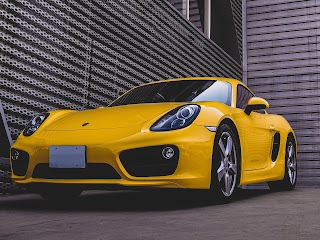My Word of the Week is ... clustering. This came up in an article I read, actually from a year ago, about the economic benefits of clustering as an argument for encouraging office workers to return to the office rather than continuing to work from home. Ed Glaeser is the chairman of the Harvard economics department and he has written extensively about clustering, mostly to do with technological development and entrepreneurship of organisations, for instance in Silicon Valley.There is a lot of research on clustering in this context but I'd say the application of the theory to the benefits of interactive working, brainstorming and mutual motivation in offices are unproven, although in some situations seemingly obvious. And perhaps need to be measured against any benefits of working from home.
I read a definition of clustering:
The task of dividing the population or data points into a number of groups such that data points in the same groups are more similar to other data points in the same group than those in other groups.
OK. Mm. [thinking about that]
When I entered the last few of my teenage years, I wanted to be a mathematician. Looking back, I can surmise that I thought working with abstract concepts and numbers was more my thing than working with people. At the time, I believed that the cleverest people in the world were mathematicians - Pythagoras, Newton, Einstein, Turing - and I wanted to be one of them. Turned out I either wasn't clever enough or I came to think that data points were not as cool as I thought. It didn't stop me, by serendipitous opportunity, becoming a computer programmer.
Much has been written on the supposed connections between mathematics and music, so I suppose it was natural that I should gravitate to the latter, and more so that I would come to appreciate and admire the music of Schönberg and Webern and their development of dodecaphonic music, based on the twelve-tone technique, in the early twentieth century. Serialism takes the twelve notes of the chromatic scale in an order particular to the composition and makes versions of this sequence - inverted, reversed, transposed, etc. - the basis of the piece. The fact that the twelve notes are theoretically equal makes the harmonic outcome of the work different from earlier music, where notes such as the first, fourth and fifth of the major or minor scale are predominant.
If you are a fan of Mozart, Abba or Miles Davis, you may not enjoy listening to serialist music.
One of the most significant books I read about congruence between maths and music is Hermann Hesse's The Glass Bead Game. It's a futuristic book which suggests that education prioritising the two subjects, studying them alongside each other, provides a perfect synthesis of arts and science. Check it out!
Anyway, I'm not going back to the office cluster anytime soon. Let's check out some Webern:
